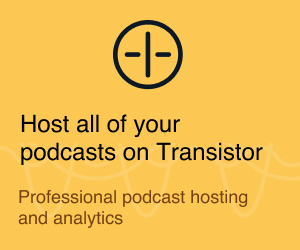
Episode preview
Episode details
On this episode Abadesi talks to Mike Vernal, partner at Sequoia, the legendary venture capital firm. They are celebrating their scout program turning a decade old. Mike shares stories about the early days at Facebook, transitioning to VC, and advice for founders seeking funding.
In this episode they talk about...
Why the culture at Facebook in the early days was so special
“People self-consciously avoided ever saying they managed someone else at Facebook. It was frowned upon for people to try to assert authority in that way. It was actually far more common for people to say that they ‘support’ teams within an org.”
Mike gives a rundown of his career in tech, including working at Microsoft and Facebook. He says that he started as an engineer instead of a product manager, but eventually would work as a product manager despite being labelled an engineer. He talks about what it was like working at Facebook in the early days and how he worked on some of the key products that he worked on at that time that you probably use today.
“For people earlier in their careers, you probably have to pick one function to start with, but being able to move between functions fluidly is incredibly valuable.”
Going from product manager to VC
“It’s surprising just how similar life as a product manager at Facebook is to being a board member at an early stage company.”
He says that when he started at Facebook, the aim was for every new hire to have deployed at least one line of code to the live site in their first week. This was a significant departure from how software was typically developed and was definitely a stark contrast from his time at Microsoft, where a piece of software would be worked on for years before being sold in a box in stores. He says that he did deploy his line of code in the first week at Facebook, but it took the site down, so he had to come back early from lunch to fix the site to get it back up. He gives his advice for people who want to advance their careers in tech, talks about how he was introduced to Sequoia through partner Bryan Schreier, and explains why being a product manager is similar to the work he does today at Sequoia.
What founders need to know about pitching VCs
“I don’t think you should do anything because investors ask for it. That is probably a waste of time, but you should try to figure out why people are asking these questions and what is the kernel of truth or insight that they are trying to get to.”
Mike talks about some of the common mistakes that people make when they pitch VCs, including why so many people find a random market size number on the internet and put it in their pitch deck. He talks about why investors ask the questions that they do and what the difference between a good product and a good business is. He also explains why he prefers that monetization be baked into the product, not bolted on as an afterthought once a company or product achieves a critical mass.
Trends Mike is excited about, including the no-code revolution
“When we talk about the community of professional software developers in the world, it’s stark just how small it is. It’s somewhere on the order of 20-30 million people around the world. When I think about Excel, it and its brethren probably have a billion users around the world and really Excel is a programming environment.”
He talks about the scout program at Sequoia, why founders should consider a scout as an investor, and some of the benefits that scouts bring. Mike talks about the importance of the no-code movement that has come about in the last few years, and how it is opening up the high-leverage tools formerly reserved for developers to a wider range of people.
We’ll be back next week so be sure to subscribe on Apple Podcasts, Google Podcasts, Spotify, Breaker, Overcast, or wherever you listen to your favorite podcasts. 😸



Comments
Add new comment
Login to comment